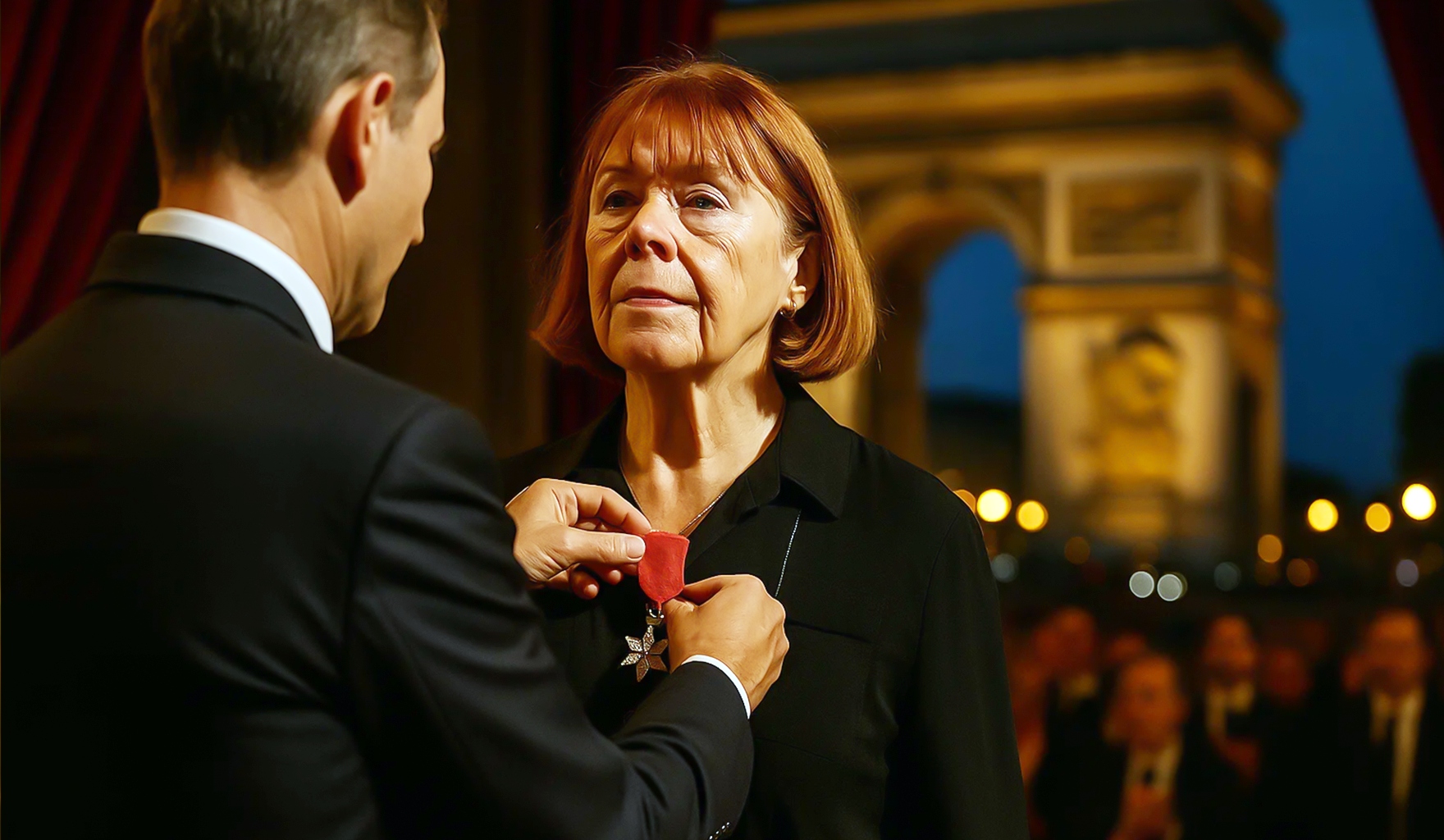Paris, July 14, 2025 — In a powerful and emotional tribute, the French government has awarded Giséle Pelicot, a 72-year-old feminist icon and survivor of one of France’s most horrifying sexual violence cases, the country’s highest civilian honor — the Legion of Honor (Légion d’Honneur). The announcement was made ahead of France’s Bastille Day celebrations, as President Emmanuel Macron released the annual list of honorees, recognizing Pelicot as a Chevalier (Knight) of the order. The award symbolizes France’s acknowledgment of Pelicot’s exceptional bravery in publicly denouncing the brutal abuse she endured and using her voice to advocate for justice and reform in the country’s legal treatment of rape and consent.
Giséle Pelicot’s story shocked the nation and the world. Born in 1952 in Villingen, Germany, and raised in France, she lived a quiet life in Mazan, a small town in southern France, with her husband Dominique and their children. Her life was shattered in 2020 when Dominique was arrested for upskirting a woman at a local supermarket. The investigation revealed a horrifying secret: for nearly nine years, Dominique had been drugging Pelicot and allowing more than 70 men to rape her in their home while he recorded the assaults. Over 92 individual rapes were documented in hidden files, exposing a systematic, organised form of sexual violence that went undetected for nearly a decade.
Rather than remain anonymous, Pelicot made the courageous decision to reveal her identity and demanded a public trial. She refused to let shame silence her and instead turned it back on the perpetrators. Her words, “It’s not us who should feel shame,” became a rallying cry for survivors and activists across France and beyond. Her strength inspired widespread public support, with crowds gathering outside the courtroom during the trial, holding signs that read “Merci Gisèle.” The trial, which began in September 2024 and concluded in December the same year, led to the conviction of all 51 defendants, including her ex-husband Dominique, who received the maximum 20-year prison sentence. Other accomplices were sentenced to between 3 and 15 years. It was one of the largest rape trials in French history.
Pelicot’s testimony and activism sparked a national reckoning. Following the trial, France amended its legal definition of rape to focus on the absence of consent — a historic shift in French law. Her case drew international attention, with feminist organisations, legal scholars, and governments acknowledging the systemic failures her ordeal exposed. She was hailed as a feminist icon by international media, featured in the *BBC’s 100 Women*, and named one of the 25 most influential women of 2024 by the *Financial Times*. In a French public poll, she was even voted the most influential personality of the year, surpassing global political figures.
The Legion of Honour is not just a personal accolade for Pelicot; it represents a broader shift in societal attitudes toward victims of sexual violence. Her bravery has contributed to transforming shame into resistance and turning personal trauma into national change. Her voice has elevated the rights of survivors and brought into focus the need for legal and cultural reforms. Feminist groups across France and Europe have rallied behind her, using her story to highlight ongoing issues of consent, chemical submission, and victim silencing.
Since the conclusion of the trial, Pelicot has chosen to step back from the public eye, focusing on healing and reflecting. She is reportedly working on a memoir titled *A Hymn to Life*, which is expected to be released in multiple languages in 2026. Despite stepping out of the spotlight, her influence continues to resonate. Her story has reignited discussions around #MeToo and gender-based violence, and activists across Europe continue to cite her as a turning point in the fight against sexual abuse.
As France honors her with the Legion of Honour, Giséle Pelicot’s journey stands as a stark reminder of the resilience of survivors and the power of speaking out. Her award is not just a medal — it is a symbol of justice, courage, and the hope that society can evolve through the bravery of one woman who refused to be silenced.




















